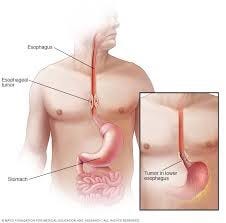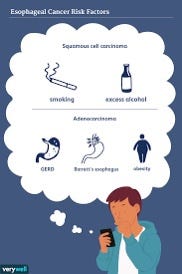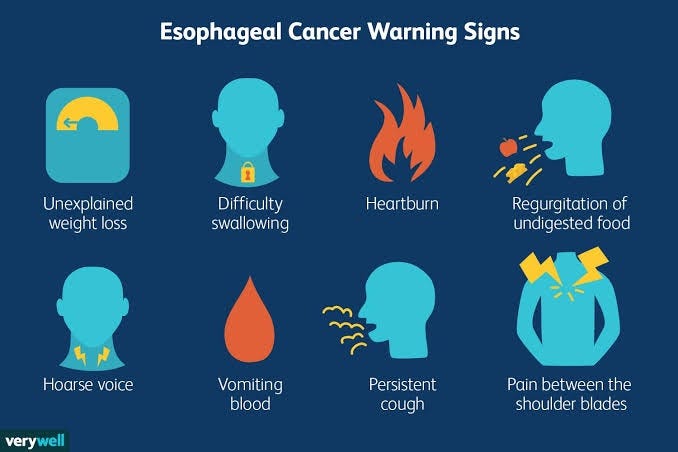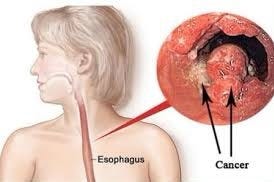- “Empowering Emergency Medicine Physicians”
- “Queue Management Software and Hospitalists in Modern Healthcare”
- “Enhancing-Pediatric-Infectious-Disease-Care”
- “Revolutionizing-Geriatric-Care”
- “Optimizing-Patient-Care-in-Pediatric-Rheumatology”
- “Pediatric-Pulmonology-Care”
- “Revolutionizing-Pediatric-Gastroenterology”
- “Enhancing-Pediatric-Neurology-Care”
- “Optimizing-Pediatric-Cardiology”
- “Enhancing-Pediatric-Endocrinology-Care”
- “Empowering-Neonatologists-with-EMR-Software”
- “Pediatrics-in-Focus”
- “Empowering-Neurologists-with-Electronic-Prescriptions”
- “Streamlining-Dermatology-Practice”
- “Streamlining-Psychiatry-Practice”
- “A-Game-Changer-for-Infectious-Disease-Specialists”
- “Allergist/Immunologist-Practices-with-QME-EMR-and-Hospital-Management-Systems”
- “Empowering-Hematologists-and-Revolutionizing-Healthcare-Management”
- “Optimizing-Healthcare-with-HMIS”
- “Transforming-Healthcare-with-Endocrinologist”
- “Healthcare-Management-with-QMe-EMR-for-Nephrologists”
- “Revolutionizing-Healthcare-Management-with-Cardiologist”
- “Streamlining-Operations-with-Queue-Management-Software”
- “Optimizing-Healthcare-Delivery”
- “Transforming-Healthcare-Management”
- HMIS And Decision Support Systems
- Dengue Unveiled: An Overview of Causes, Symptoms, and Prevention.
- Dengue Fever: Unraveling the Mosquito-Borne Menace.
- HMIS-and-Continuity-of-Care
- Project-Management-for-Successful-HMIS
- Catalysts of Wellness: The Transformative Power of Diagnosis and Screening in Healthcare
- Patient-Data-Management
- Guardians of Healthcare: The Vital Role of Fraud Detection in Ensuring Ethical Care
- Unlocking Insights
- Healthcare in the Digital Age: The History Of Development Of HMIS
- Transforming Healthcare
- Safeguarding-HMIS-Data
- HMIS-Integration-Challenges
- ANXIETY UNVEILED: CONQUERING FEARS AND CULTIVATING CALM.
- BEYOND THE BLUE: EMBRACING LIGHT ON THE PATH OF DEPRESSION.
- BEYOND THE BLUE: EMBRACING LIGHT ON THE PATH OF DEPRESSION.
- HMIS and Resource Allocation
- HMIS Data Accuracy and Integrity
- SOOTHING THE SILENT PAIN: UNDERSTANDING VULVODYNIA.
- Impact of HMIS on OPD Operations
- In Patient Management Through Health Management
- WITHIN THE SHADOWS: UNDERSTANDING BRAIN TUMOURS FROM WITHIN
- HMIS-and-Health-Insurance-Integration
- HMIS-Data-Analytics-for-Preventive-Care
- SILENT INTRUDERS: UNRAVELLING THE MYSTERIES OF PELVIC INFLAMMATORY DISEASE
- BREAKING FREE: OVERCOMING THE HURDLE OF URINARY INCONTINENCE
- “HMIS and Doctor-Patient Communication”
- HEALING INSIGHTS: THE POWER OF THE HOSPITAL MANAGEMENT INFORMATION SYSTEM.
- SOLVING THE OVARIAN PUZZLE:UNDERSTANDING OVARIAN CYST INSIDE OUT
- Usability And User Experience In HMIS
- WARRIOR’S BATTLE: TRIUMPHING OVER UTERINE CANCER
- POLYCYSTIC OVARY PUZZLE: UNRAVELLING THE ENIGMA OF PCOS
- Unlocking-the-Potential-of-HMIS-Data-for Medical-Research-and-Healthcare-Policy-Enhancement
- Feminine Health Unplugged: Empowering Women in Vaginal Infection Awareness
- Revitalizing Feminine Comfort: A Journey Through Vaginal Wellness.
- HMIS Vendor Selection Guide
- UNDERSTANDING FIBROIDS: NAVIGATING THE INTRICACIES OF UTERINE HEALTH.
- Best Practices for Data Migration in Healthcare Management Information Systems (HMIS)
- CONCEIVING HOPE: NAVIGATING THE JOURNEY OF INFERTILITY
- MENSTRUAL IRREGULARITIES: CAUSES AND TREATMENT
- RISING ABOVE: EMPOWERING WOMEN WITH PELVIC ORGAN PROLAPSE
- Leveraging HMIS for Enhanced Public Health Management and Disease Surveillance
- Challenges and Benefits of Implementing HMIS in Rural and Remote Healthcare Settings
- Securing Healthcare Continuity
- Pancreatic Cancer
- Lymphoma
- Leukemia
- Bladder Cancer
- Skin Cancer (Melanoma)
- COLORECTAL CANCER
- All about Prostate Cancer
- Fighting out the Disease of Lung Cancer
- Advances in Breast Cancer Treatment: A Comprehensive Guide
- Autism Spectrum Disorder (ASD)
- EHR SYMPHONY: HARMONIZING HEALTHCARE THROUGH ELECTRONIC RECORDS .
- Understanding Testicular Cancer: Detection, Treatment And Awareness.
- Childhood Obesity
- Kawasaki Disease
- Eczema (Atopic Dermatitis)
- Understanding Bone Cancer: A Brief Overview.
- Virtual Healing: Navigating Healthcare Through Telemedicine and Telehealth.
- Attention-Deficit/Hyperactivity Disorder (ADHD)
- PELVIC PAIN:CAUSES SYMPTOMS AND PREVENTIONS
- Type 1 Diabetes: Causes, Symptoms, and Treatment
- Gastroesophageal Reflux Disease (GERD)
- Battling Pneumonia: Unveiling the Stealthy Invader of the Lungs
- Unravelling the Complexity of Allergic Reactions: Understanding, Managing, and Thriving
- Rashes (Eczema, Dermatitis)
- UNDERSTANDING CERVICAL DYSPLASIA: CAUSES, SYMPTOMS AND MANAGEMENT
- Chicken Pox
- Endometriosis Unmasked: A Closer Look at the Silent Struggle
- Croup
- Hand, Foot and Mouth Disease (HFMD)
- THE DAWNING OF A NEW ERA: EMBRACING THE JOURNEY OF MENOPAUSE
- Urinary Tract Infections (UTIs)
- Strep Throat (Streptococcal Pharyngitis)
- Understanding Otitis Media(Ear Infection)
- 28th July In medical history!!
- Influenza (Flu) - Symptoms, Prevention and Management
- 27th July In medical history!!
- Respiratory Syncytial Virus (RSV) Infection
- SIGNIFICANCE AND ADVANTAGES OF HMIS: A DETAILED ANALYSIS
- Beyond Boundaries: Transforming Healthcare with Virtual Reality
- TRACK YOUR LIFE : A DETAILED UNDERSTANDING ON HEALTH MONITORING SYSTEM
- EXPLORING BENEATH THE SURFACE: UNDERSTANDING BARTHOLIN CYSTS AND ABSCESSES
- GUARDING GUT HEALTH: YOUR GUIDE TO POTENTIAL CROHN’S DISEASE PREVENTION.
- Gastric Battles: Confronting Stomach Cancer Head-On.
- HMIS IN SMALL CLINICS: A STEP TO A BETTER FUTURE
- Harmonizing Your Cycle: A Journey to Menstrual Health and Balance.
- Respiratory Syncytial Virus (RSV) Infection
- GUARDING OUR INTIMATE WORLD: A CLOSER LOOK AT STI
- Real-World HMIS Implementation Case Studies: Using Data to Transform Healthcare
- Gastroenteritis (Stomach Flu)
- Asthama - The Anatomy Of Breathing
- Influenza - A Silent Intruder
- Breast Cancer
PATHWAYS OF HOPE: NAVIGATING THE CHALLENGES OF ESOPHAGEAL CANCER
PATHWAYS OF HOPE: NAVIGATING THE CHALLENGES OF ESOPHAGEAL CANCER
INTRODUCTION

Esophageal cancer is a malignancy that develops in the esophagus, the muscular tube that connects the throat to the stomach. It’s a relatively uncommon form of cancer but can be aggressive and challenging to treat, especially if detected at later stages. There are two main types of esophageal cancer:
- Squamous Cell Carcinoma:
This type of esophageal cancer originates in the thin, flat cells lining the esophagus. It’s often linked to factors such as tobacco and alcohol use, as well as dietary habits and exposure to certain chemicals.
- Adenocarcinoma:
Adenocarcinoma of the esophagus typically arises in the glandular cells that produce mucus in the lower part of the esophagus, near the stomach. It’s often associated with a condition called Barrett’s esophagus, where the normal esophageal lining is replaced by tissue that resembles the lining of the intestines.
Risk factors for esophageal cancer include:
- Tobacco and Alcohol Use: Heavy tobacco and alcohol use are significant risk factors, particularly for squamous cell carcinoma.
- Gastroesophageal Reflux Disease (GERD): Chronic acid reflux can lead to Barrett’s esophagus and increase the risk of adenocarcinoma.
- Obesity: Being overweight or obese can contribute to the development of adenocarcinoma of the esophagus.
- Dietary Factors: Diets low in fruits and vegetables and high in processed meats have been associated with an increased risk.
- Radiation Exposure: Previous radiation treatment to the chest or upper abdomen may increase the risk.
- Certain Medical Conditions: Conditions like achalasia (a disorder of the esophagus) and tylosis (a genetic skin disorder) can raise the risk of esophageal cancer.
CAUSES AND RISK FACTORS INVOLVED

The exact causes of esophageal cancer are not always fully understood, but several risk factors have been identified that can increase the likelihood of developing this type of cancer. These risk factors can be categorized into different groups:
- Lifestyle Factors:
Tobacco Use: Smoking tobacco, including cigarettes and cigars, is a major risk factor for esophageal cancer. Tobacco smoke contains carcinogens that can damage the cells lining the esophagus.
Alcohol Consumption: Excessive and long-term alcohol consumption is associated with an increased risk, particularly for squamous cell carcinoma of the esophagus.
- Diet and Obesity:
Poor Diet:Diets low in fruits and vegetables and high in processed foods, red meat, and unhealthy fats have been linked to a higher risk of esophageal cancer.
3.Obesity: Being overweight or obese is a risk factor for adenocarcinoma of the esophagus. Excess weight can contribute to chronic acid reflux and inflammation, potentially leading to cancer development.
- Medical Conditions:
. Gastroesophageal Reflux Disease (GERD): Chronic acid reflux can lead to Barrett’s esophagus, a condition where the esophageal lining changes, increasing the risk of adenocarcinoma.
. Barrett’s Esophagus: People with Barrett’s esophagus have an increased risk of developing adenocarcinoma of the esophagus.
- Environmental and Occupational Exposures:
. Radiation Exposure: Previous radiation therapy to the chest or upper abdomen, often used to treat other cancers, can increase the risk of esophageal cancer.
. Chemical Exposure: Certain chemicals, such as those used in metal production and coal mining, have been associated with an elevated risk of esophageal cancer.
- Genetic and Hereditary Factors:
. Family History: Having a family history of esophageal cancer or other cancers can increase the risk, although the genetic factors involved are complex and not fully understood.
- Age and Gender:
. Age: Esophageal cancer is more common in older individuals, typically over the age of 50.
. Gender: Men are more likely to develop esophageal cancer than women.
It’s important to note that while these risk factors can increase the likelihood of developing esophageal cancer, they don’t guarantee that the disease will develop. Likewise, some individuals without these risk factors may still develop the cancer. Reducing exposure to known risk factors and adopting a healthy lifestyle can contribute to lowering the risk of esophageal cancer. If you have concerns or any risk factors, discussing them with a healthcare professional is advisable.
SPOTTING THE SIGNS OF ESOPHAGEAL CANCER

The symptoms of esophageal cancer can vary depending on the type of cancer (squamous cell carcinoma or adenocarcinoma), the location of the tumor, and the stage of the disease. Common symptoms of esophageal cancer include:
- Difficulty Swallowing (Dysphagia):
This is one of the most common early symptoms. You might feel like food is getting stuck or not going down smoothly.
- Unintended Weight Loss:
Significant weight loss without trying can be a sign of various underlying health issues, including esophageal cancer.
- Chest Pain or Discomfort:
Pain or a burning sensation behind the breastbone or in the chest area can be associated with esophageal cancer.
- Persistent Cough or Hoarseness:
If the tumor is affecting the nerves or tissues near the trachea (windpipe), it can lead to a chronic cough or hoarseness.
- Indigestion or Heartburn:
While these symptoms are common and often not related to cancer, persistent or worsening symptoms may warrant investigation.
- Vomiting:
Some people might experience frequent vomiting, which might be accompanied by blood.
- Regurgitation of Food:
Food or liquids may come back up into the throat or mouth after swallowing.
It’s important to note that these symptoms can also be caused by other medical conditions, and their presence doesn’t necessarily indicate esophageal cancer. However, if you experience any of these symptoms, especially if they are persistent or worsening, it’s advisable to consult a healthcare professional for proper evaluation and diagnosis.
Esophageal cancer is often diagnosed at an advanced stage due to its relatively subtle symptoms, which is why routine medical check-ups and early intervention are crucial, particularly if you have risk factors such as a history of smoking, heavy alcohol consumption, chronic acid reflux, or a family history of the disease. To make things feasible, QMe is a cutting-edge hospital management software designed to revolutionize healthcare facilities worldwide. With its intelligent queue-based OPD management system, patients experience reduced waiting times and optimized appointment scheduling. The software’s comprehensive patient history and electronic health records ensure seamless access to critical medical information, enabling healthcare professionals to make informed decisions and provide personalized care. QMe’s automatic workflows streamline administrative tasks and treatment plans, enhancing overall efficiency and reducing human errors. The software’s IPD management feature enables smooth inpatient care coordination, while its TPA support simplifies insurance processes.
CHEMOTHERAPY AND RADIATION THERAPY
Chemotherapy and radiation therapy are two common treatment approaches used for esophageal cancer. They can be used individually or in combination, depending on the specific type of cancer, its stage, and the patient’s overall health. Let’s explore each treatment method:
- Chemotherapy:
Chemotherapy involves the use of powerful drugs to target and kill rapidly dividing cancer cells. It’s commonly used in esophageal cancer to shrink tumors before surgery, to treat advanced or inoperable cases, or in combination with radiation therapy.
– Chemotherapy drugs can be administered orally or intravenously, and they circulate throughout the body to reach cancer cells wherever they may be.
– Chemotherapy can help reduce the size of tumors, control their growth, and alleviate symptoms.
– Common chemotherapy drugs used for esophageal cancer include cisplatin, 5-fluorouracil (5-FU), and docetaxel.
- Radiation Therapy:
. – Radiation therapy uses high-energy beams to target and destroy cancer cells or shrink tumors. It’s often used in combination with surgery, chemotherapy, or both.
. – External beam radiation therapy is the most common method, where radiation is delivered from outside the body using a machine.
. – In some cases, brachytherapy (internal radiation therapy) may be used, where a radioactive source is placed directly inside or near the tumor.
. – Radiation therapy can be used before surgery to shrink the tumor, after surgery to kill any remaining cancer cells, or as palliative treatment to relieve symptoms.
. – Advanced techniques like intensity-modulated radiation therapy (IMRT) and proton therapy allow for precise targeting of tumors while minimizing damage to healthy tissue.
- Combined Approach:
. Often, chemotherapy and radiation therapy are used together as part of a multimodal treatment plan. This combination is known as chemoradiation.
. Chemoradiation can be used to make tumors more manageable for surgical removal or as a primary treatment option for patients who are not surgical candidates.
. –The chemotherapy component enhances the effectiveness of radiation therapy by sensitizing cancer cells to radiation.
The choice between chemotherapy, radiation therapy, or a combination of both depends on factors such as the type and stage of esophageal cancer, the patient’s overall health, and individualized treatment plans developed by medical oncologists, radiation oncologists, and surgeons.
As with any cancer treatment, there can be side effects associated with chemotherapy and radiation therapy. These can include fatigue, nausea, vomiting, appetite changes, hair loss, and skin irritation (with radiation therapy). Your healthcare team will monitor your progress and help manage any side effects to ensure the best possible quality of life during treatment.
PREVENTATIVE MEASURES
While there is no guaranteed way to prevent esophageal cancer, there are several steps you can take to reduce your risk:
- Healthy Diet:
Adopt a diet rich in fruits, vegetables, whole grains, and lean proteins. Limit consumption of processed foods, red meats, and foods high in unhealthy fats. A balanced diet can help maintain a healthy weight and reduce the risk of obesity, a known risk factor for esophageal cancer.
- Tobacco and Alcohol:
Avoid tobacco use in any form, including smoking and chewing tobacco. Additionally, limit alcohol consumption, as heavy and long-term alcohol use is a significant risk factor for esophageal cancer.
- Manage Acid Reflux:
Chronic gastroesophageal reflux disease (GERD) can increase the risk of esophageal cancer. Managing acid reflux through lifestyle changes and, if necessary, medications prescribed by a healthcare provider, can help reduce this risk.
- Maintain a Healthy Weight:
Being overweight or obese is associated with a higher risk of esophageal cancer, particularly adenocarcinoma. Maintaining a healthy weight through a balanced diet and regular exercise can help lower your risk.
- Avoid Harmful Exposures:
Minimize exposure to environmental toxins and chemicals that can increase the risk of cancer. If you work in environments with potential carcinogenic exposures, follow safety guidelines and use protective equipment.
- Stay Hydrated:
Drinking enough fluids can help prevent chronic irritation and inflammation of the esophagus, which might reduce the risk of certain types of esophageal cancer.
- Regular Check-ups:
Schedule regular medical check-ups, especially if you have risk factors or a family history of esophageal cancer. Your healthcare provider can monitor your health and address any concerns promptly.
- Be Mindful of Diet and Lifestyle:
Avoid rapid eating, excessive consumption of hot liquids, and very hot foods, as these factors have been suggested to contribute to an increased risk of esophageal cancer.
- Screening and Early Detection:
If you have a history of Barrett’s esophagus or other risk factors, talk to your doctor about whether regular screening is recommended. Early detection and treatment can improve outcomes.
It’s important to note that while these steps can lower your risk of esophageal cancer, they do not provide complete immunity. Some risk factors, such as genetic predisposition, are beyond your control. If you have concerns about your risk or any symptoms, consult with a healthcare professional for personalized guidance and recommendations.
CONCLUSION

In conclusion, esophageal cancer is a complex and often aggressive disease that affects the esophagus, the tube connecting the throat to the stomach. While complete prevention is not always possible, adopting certain strategies can significantly reduce the risk of developing this type of cancer.
Maintaining a healthy lifestyle through a balanced diet, regular exercise, and avoiding tobacco and excessive alcohol consumption can play a crucial role in reducing your risk. Managing conditions like acid reflux and maintaining a healthy weight are also important steps in prevention.
Regular medical check-ups and discussions with healthcare professionals are essential, especially if you have risk factors such as a family history of esophageal cancer or a history of conditions like Barrett’s esophagus. Early detection through screening and prompt medical attention for symptoms can greatly improve outcomes.
While there’s no way to completely eliminate the risk of esophageal cancer, these preventive measures empower you to take control of your health and make informed choices. By incorporating these practices into your lifestyle and staying vigilant about your well-being, you can reduce your susceptibility to this challenging disease and enhance your overall quality of life.
To know more about QMe ,
QMe is a cutting-edge hospital management software designed to revolutionize healthcare facilities worldwide. With its intelligent queue-based OPD management system, patients experience reduced waiting times and optimized appointment scheduling. The software’s comprehensive patient history and electronic health records ensure seamless access to critical medical information, enabling healthcare professionals to make informed decisions and provide personalized care. QMe’s automatic workflows streamline administrative tasks and treatment plans, enhancing overall efficiency and reducing human errors. The software’s IPD management feature enables smooth inpatient care coordination, while its TPA support simplifies insurance processes. Additionally, QMe offers packages support for various medical services and features automated billing to ensure transparent and hassle-free financial transactions. Embracing QMe empowers hospitals to enhance patient experiences, optimize healthcare workflows, and deliver top-notch medical services.
- “Empowering Emergency Medicine Physicians”
- “Queue Management Software and Hospitalists in Modern Healthcare”
- “Enhancing-Pediatric-Infectious-Disease-Care”
- “Revolutionizing-Geriatric-Care”
- “Optimizing-Patient-Care-in-Pediatric-Rheumatology”
- “Pediatric-Pulmonology-Care”
- “Revolutionizing-Pediatric-Gastroenterology”
- “Enhancing-Pediatric-Neurology-Care”
- “Optimizing-Pediatric-Cardiology”
- “Enhancing-Pediatric-Endocrinology-Care”
- “Empowering-Neonatologists-with-EMR-Software”
- “Pediatrics-in-Focus”
- “Empowering-Neurologists-with-Electronic-Prescriptions”
- “Streamlining-Dermatology-Practice”
- “Streamlining-Psychiatry-Practice”
- “A-Game-Changer-for-Infectious-Disease-Specialists”
- “Allergist/Immunologist-Practices-with-QME-EMR-and-Hospital-Management-Systems”
- “Empowering-Hematologists-and-Revolutionizing-Healthcare-Management”
- “Optimizing-Healthcare-with-HMIS”
- “Transforming-Healthcare-with-Endocrinologist”
- “Healthcare-Management-with-QMe-EMR-for-Nephrologists”
- “Revolutionizing-Healthcare-Management-with-Cardiologist”
- “Streamlining-Operations-with-Queue-Management-Software”
- “Optimizing-Healthcare-Delivery”
- “Transforming-Healthcare-Management”
- HMIS And Decision Support Systems
- Dengue Unveiled: An Overview of Causes, Symptoms, and Prevention.
- Dengue Fever: Unraveling the Mosquito-Borne Menace.
- HMIS-and-Continuity-of-Care
- Project-Management-for-Successful-HMIS
- Catalysts of Wellness: The Transformative Power of Diagnosis and Screening in Healthcare
- Patient-Data-Management
- Guardians of Healthcare: The Vital Role of Fraud Detection in Ensuring Ethical Care
- Unlocking Insights
- Healthcare in the Digital Age: The History Of Development Of HMIS
- Transforming Healthcare
- Safeguarding-HMIS-Data
- HMIS-Integration-Challenges
- ANXIETY UNVEILED: CONQUERING FEARS AND CULTIVATING CALM.
- BEYOND THE BLUE: EMBRACING LIGHT ON THE PATH OF DEPRESSION.
- BEYOND THE BLUE: EMBRACING LIGHT ON THE PATH OF DEPRESSION.
- HMIS and Resource Allocation
- HMIS Data Accuracy and Integrity
- SOOTHING THE SILENT PAIN: UNDERSTANDING VULVODYNIA.
- Impact of HMIS on OPD Operations
- In Patient Management Through Health Management
- WITHIN THE SHADOWS: UNDERSTANDING BRAIN TUMOURS FROM WITHIN
- HMIS-and-Health-Insurance-Integration
- HMIS-Data-Analytics-for-Preventive-Care
- SILENT INTRUDERS: UNRAVELLING THE MYSTERIES OF PELVIC INFLAMMATORY DISEASE
- BREAKING FREE: OVERCOMING THE HURDLE OF URINARY INCONTINENCE
- “HMIS and Doctor-Patient Communication”
- HEALING INSIGHTS: THE POWER OF THE HOSPITAL MANAGEMENT INFORMATION SYSTEM.
- SOLVING THE OVARIAN PUZZLE:UNDERSTANDING OVARIAN CYST INSIDE OUT
- Usability And User Experience In HMIS
- WARRIOR’S BATTLE: TRIUMPHING OVER UTERINE CANCER
- POLYCYSTIC OVARY PUZZLE: UNRAVELLING THE ENIGMA OF PCOS
- Unlocking-the-Potential-of-HMIS-Data-for Medical-Research-and-Healthcare-Policy-Enhancement
- Feminine Health Unplugged: Empowering Women in Vaginal Infection Awareness
- Revitalizing Feminine Comfort: A Journey Through Vaginal Wellness.
- HMIS Vendor Selection Guide
- UNDERSTANDING FIBROIDS: NAVIGATING THE INTRICACIES OF UTERINE HEALTH.
- Best Practices for Data Migration in Healthcare Management Information Systems (HMIS)
- CONCEIVING HOPE: NAVIGATING THE JOURNEY OF INFERTILITY
- MENSTRUAL IRREGULARITIES: CAUSES AND TREATMENT
- RISING ABOVE: EMPOWERING WOMEN WITH PELVIC ORGAN PROLAPSE
- Leveraging HMIS for Enhanced Public Health Management and Disease Surveillance
- Challenges and Benefits of Implementing HMIS in Rural and Remote Healthcare Settings
- Securing Healthcare Continuity
- Pancreatic Cancer
- Lymphoma
- Leukemia
- Bladder Cancer
- Skin Cancer (Melanoma)
- COLORECTAL CANCER
- All about Prostate Cancer
- Fighting out the Disease of Lung Cancer
- Advances in Breast Cancer Treatment: A Comprehensive Guide
- Autism Spectrum Disorder (ASD)
- EHR SYMPHONY: HARMONIZING HEALTHCARE THROUGH ELECTRONIC RECORDS .
- Understanding Testicular Cancer: Detection, Treatment And Awareness.
- Childhood Obesity
- Kawasaki Disease
- Eczema (Atopic Dermatitis)
- Understanding Bone Cancer: A Brief Overview.
- Virtual Healing: Navigating Healthcare Through Telemedicine and Telehealth.
- Attention-Deficit/Hyperactivity Disorder (ADHD)
- PELVIC PAIN:CAUSES SYMPTOMS AND PREVENTIONS
- Type 1 Diabetes: Causes, Symptoms, and Treatment
- Gastroesophageal Reflux Disease (GERD)
- Battling Pneumonia: Unveiling the Stealthy Invader of the Lungs
- Unravelling the Complexity of Allergic Reactions: Understanding, Managing, and Thriving
- Rashes (Eczema, Dermatitis)
- UNDERSTANDING CERVICAL DYSPLASIA: CAUSES, SYMPTOMS AND MANAGEMENT
- Chicken Pox
- Endometriosis Unmasked: A Closer Look at the Silent Struggle
- Croup
- Hand, Foot and Mouth Disease (HFMD)
- THE DAWNING OF A NEW ERA: EMBRACING THE JOURNEY OF MENOPAUSE
- Urinary Tract Infections (UTIs)
- Strep Throat (Streptococcal Pharyngitis)
- Understanding Otitis Media(Ear Infection)
- 28th July In medical history!!
- Influenza (Flu) - Symptoms, Prevention and Management
- 27th July In medical history!!
- Respiratory Syncytial Virus (RSV) Infection
- SIGNIFICANCE AND ADVANTAGES OF HMIS: A DETAILED ANALYSIS
- Beyond Boundaries: Transforming Healthcare with Virtual Reality
- TRACK YOUR LIFE : A DETAILED UNDERSTANDING ON HEALTH MONITORING SYSTEM
- EXPLORING BENEATH THE SURFACE: UNDERSTANDING BARTHOLIN CYSTS AND ABSCESSES
- GUARDING GUT HEALTH: YOUR GUIDE TO POTENTIAL CROHN’S DISEASE PREVENTION.
- Gastric Battles: Confronting Stomach Cancer Head-On.
- HMIS IN SMALL CLINICS: A STEP TO A BETTER FUTURE
- Harmonizing Your Cycle: A Journey to Menstrual Health and Balance.
- Respiratory Syncytial Virus (RSV) Infection
- GUARDING OUR INTIMATE WORLD: A CLOSER LOOK AT STI
- Real-World HMIS Implementation Case Studies: Using Data to Transform Healthcare
- Gastroenteritis (Stomach Flu)
- Asthama - The Anatomy Of Breathing
- Influenza - A Silent Intruder
- Breast Cancer